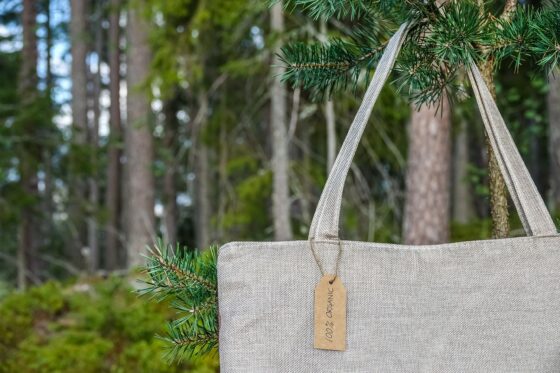
What if we turned to more eco-friendly reusable bags? This is the niche in which various brands are positioning themselves, such as a Swiss company that offers carrier bags made of wood fiber. With the approach of World Plastic Bag Free Day, which takes place on July 3, the focus is on alternatives to classic carrier bags (and problematic for the environment).
Since you have to equip yourself with shopping bags when you go shopping, the reflex to turn to the good old cotton tote bag, which has become one of the strong symbols of the world over the years “good green burger”† However, this reusable bag is distinguished for its environmental impact, in particular due to the high consumption of water and cotton required for its manufacture. According to several studies classic cotton tote bags should actually be used thousands of times to have a positive impact on the environment (and thereby wipe out the total carbon footprint related to its manufacture).
Too bad, as the idea of a sturdy bag that can be used for several years has largely proven its potential and found its clientele. This is also the reason why several brands start producing “environmentally friendly carrier bags”some of which are made of organic cotton and/or without printing (the ink used makes it very difficult to recycle the bags).
But you can also simply opt for bags made from more sustainable and ethical textiles than cotton, such as British brand Ally Capellino, which has introduced hemp. Or the designer Anya Hindmarch who launched a new version of her famous tote bag “I am a plastic bag” in 2020, made from recycled plastic water bottles.
The Swiss brand BioApply is proud of its sales “the most ecological carrier bag in the world” with its wooden range. As the name suggests, these bags are made from sustainable wood fibers from European forests. “Wood waste from European forests is cut into small chips and then soaked in a solution to reduce the pulp to a paste. This pulp follows a specific process to form fiber threads, which are then woven to make a lyocell fabric.says the company.
So we say: “Yes” to the reusable bag for shopping and to block plastic! While we try as much as possible to promote the use of shopping bags made of sustainable materials. Hemp and wood fibres, in other words… but also flax or even straw.
(ETX Daily Up)